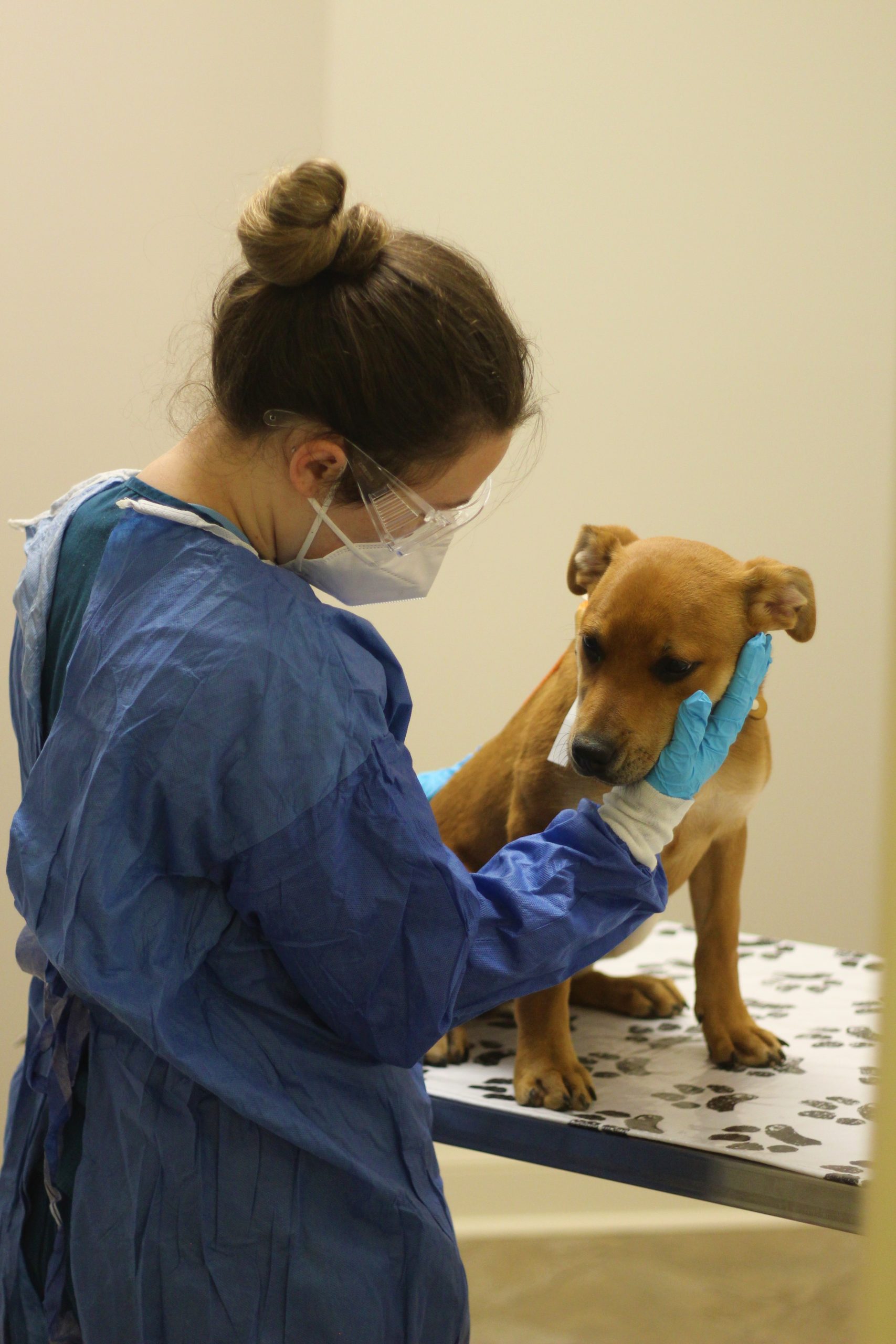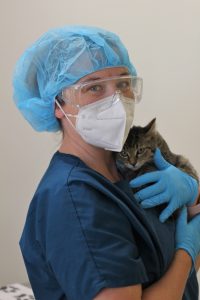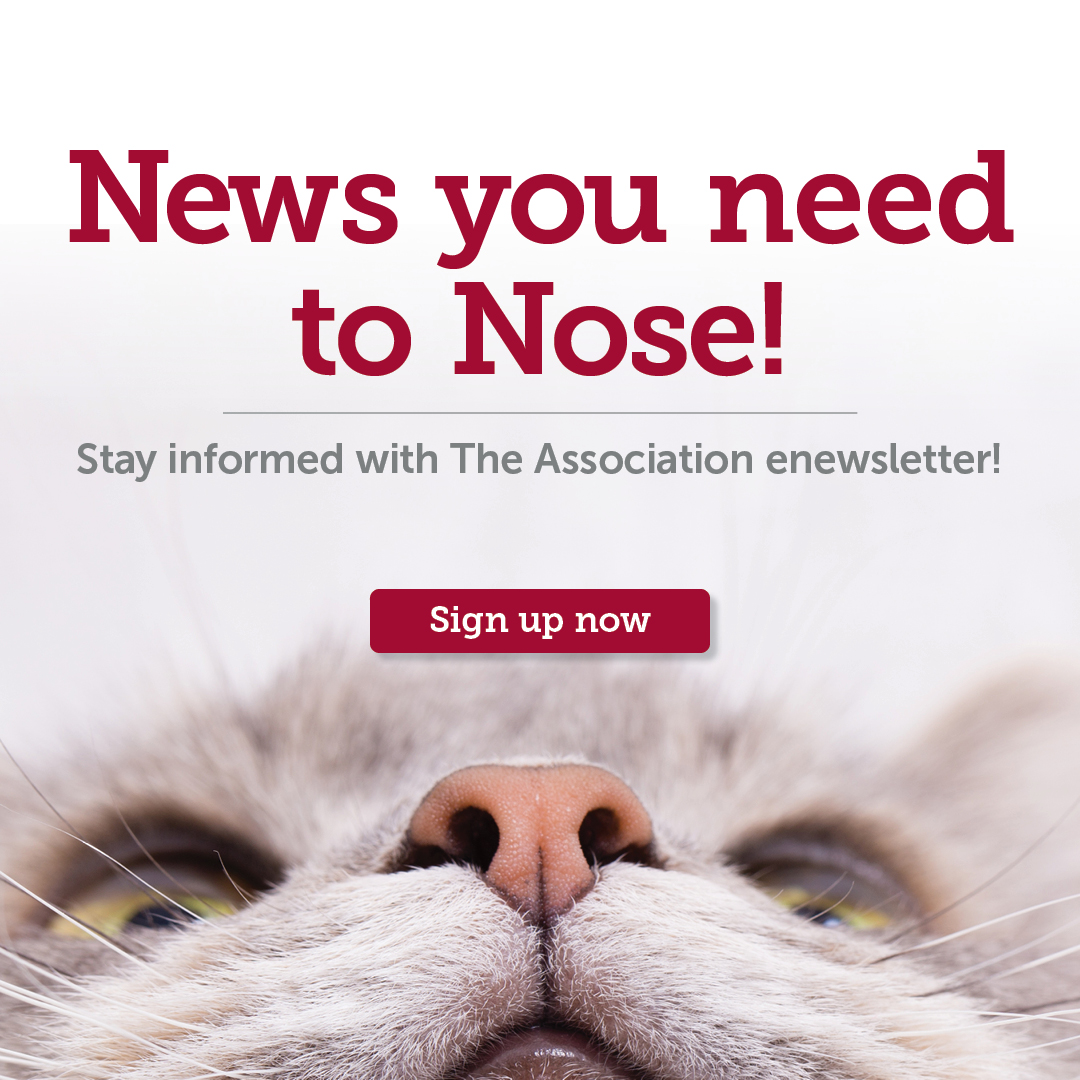News, ideas & inspiration from industry leaders

Stories from the Field: Anicira Veterinary Center
To learn more about what’s going on with our colleagues in the field, we’ve been checking in with some agencies to see how they’re faring. Here’s the scoop from Anicira Veterinary Center, a nonprofit veterinary organization dedicated to helping underserved pets and their people; the agency offers low-cost spay/neuter and wellness services at multiple locations in the Virginia/D.C. Metro Area.
What Anicira Veterinary Center experienced at the start of the pandemic was similar to what many businesses experienced—clients cancelling appointments due to concerns about being in public, and staff concerned about possible exposure to coronavirus. Recalls Anicira President & CEO Cate Lemmond, “We knew we would need to adjust our approach so that team members would be comfortable at work and clients who were concerned or were in a high-risk category could still bring their pets to Anicira.”
Proceeding with caution
As they monitored CDC guidelines and ensured they were always following current guidance for veterinary practices, Anicira adjusted operations and prioritized the patients. “As a full-service hospital, we felt that continuing to provide affordable services that keep pets healthy and safe was important,” says Lemmond. “We focused on providing spay/neuter services for animal shelters and rescue groups so the animals could be adopted out more quickly in case the shelter needed to reduce hours or close.”
Modifications and enhancements for clients
Lemmond shares the changes Anicira made in order to meet social distancing needs:
- They offer telemedicine and curbside service with check-in, check-out and touchless payment through their website.
- They email admission and client consent forms the day before the appointment. “This helped with efficiency so when clients arrived, we already had records and other information needed,” says Lemmond.
- They use a chat function on their website with a form for clients to complete on arrival, so they know things like the make and color of their vehicle and type of appointment.
- They set up a client comfort station outside with water for clients and pets, bowls, paper towels and other pet care supplies.
Modifications and enhancements for staff
Anicira initiated many new processes and procedures:
- Team members are asked to complete an online self-monitoring questionnaire before reporting to work each day.
- Temperature checks are done at the hospital before team members enter the building.
- Team members are required to wear properly fitted face masks, provided by Anicira, while in the building.
- There are socially distanced TV trays in the lobby and exam rooms for meal breaks, and several picnic tables spaced for social distancing.
- They’ve made adjustments to the schedule and reduced business hours to allow for cleaning and disinfecting throughout the day.

New roles & responsibilities
Anicira has created two new positions:
- Health Officers, who have the authority to stop or alter activities to ensure that all work practices conform to the mandatory safety and health requirements applicable to COVID-19 and other infectious disease hazards.
- A float position for a team member cross trained in the basic skills and duties of each department to fill in as needed. “Each week,” shares Lemmond, “we have had team members who needed to unexpectedly be away from the hospital for illness, childcare or possible COVID-19 exposure. Creating this position has helped us be prepared for the absences and allowed us to continue to provide services uninterrupted. Going into the flu and cold season, we anticipate this might be more critical, so we are going to increase the number of float positions.”
Data & customer feedback
Data from the Veterinary Hospital Managers Association (VHMA) shows an increase in new client growth during the pandemic. According to the VHMA, factors contributing to this likely include pet parents working from home and paying more attention to their pets thus leading to more vet care.
Anicira’s data is consistent with this trend, with patient visits increasing approximately 11% compared to last year. Adds Lemmond, “However, between our two locations, we have welcomed three new doctors and two new licensed technicians to the team since the pandemic began, so we would expect the number of patient visits to increase.”
Lemmond also reports much positive feedback from clients. “Some clients have expressed that their pets seem less stressed because the appointments are very efficient, and the pets can wait in the car rather than in the hospital lobby.”
What’s next
Now that they know that this is not going to be a short-term pandemic, Anicira has turned its focus to longer-term response and planning. That means supporting team members in new and different ways, including access to their Employee Assistance Plan. Says Lemmond, “Helping keep the team healthy, both mentally and physically, will help them fulfill their roles at the hospital, especially moving forward as COVID fatigue is becoming more of a concern.”
Conversations and check-ins with the team are frequent, and ongoing. “We are talking about the challenges of the pandemic and trying to find ways to give ourselves, each other, our clients and patients some grace,” says Lemmond. “I have found that expressing gratitude and appreciation is very important – and not just from leadership, so we are finding new ways to make this happen from peer to peer.”
Learn More
Visit the Anicira website
Visit Anicira on Facebook
If you’re doing low-cost spay/neuter or TNR, and would like to be featured, visit our site for more information and contact info.


